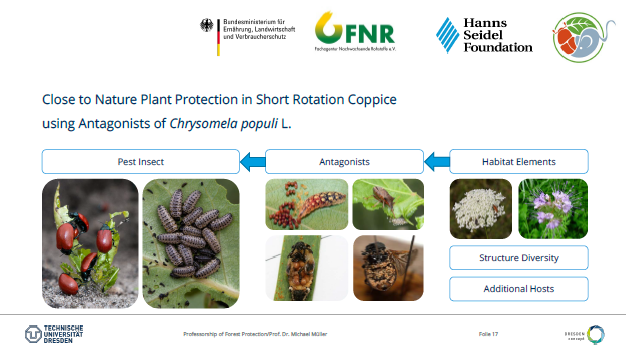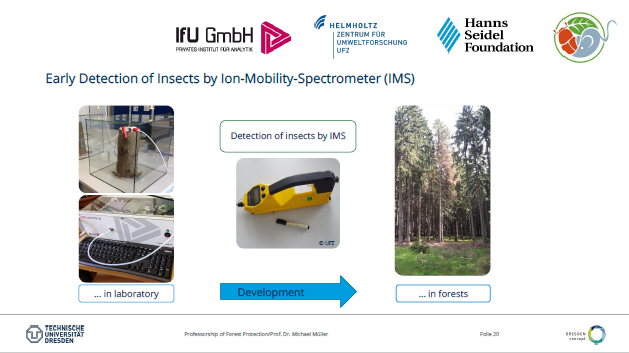Seminar
Biological Pest Control in Forest Areas with the DPRK MoLEP

The virtual seminar, which focused on the detection and regulation of forest pests was conducted between HSF Korea and forestry specialists from the DPRK. Professor Michael Müller, Chair of Forest Protection, Technical University Dresden, shared his experiences and research on the monitoring of invasive species and their spread. He also introduced the novel aspect within this project is the use of an ion-mobility spectrometer (IMS) for the olfactory detection of invasive species. Such methods may, for example, be employed at international trade centers for plant and timber products to detect the occurrence of invasive species or quarantine pests.

The seminar was organized as two presentations given by Professor Müller, separated by discussion sessions. The first presentation focused largely on the general understanding of forest pests and their populations, as well as the dynamics between pests, predators, and parasites. Against this backdrop, Professor Müller introduced natural means of pest control such as other insects or fungi. After a short break, the second presentation provided detailed examples of forest pest control in Germany and focused specifically on der early detection of insects by IMS. It was the first virtual seminar held jointly with the Ministry of Land Use and Environmental Protection of North Korea. 30 forestry experts from North Korea were interested listeners who asked many questions. Prof. Müller already was in Pyongyang in 2017 for a seminar as well as for the Hanns-Seidel-Foundation's model reforestation and tree nursery in Sangsori, Taedonggun.
